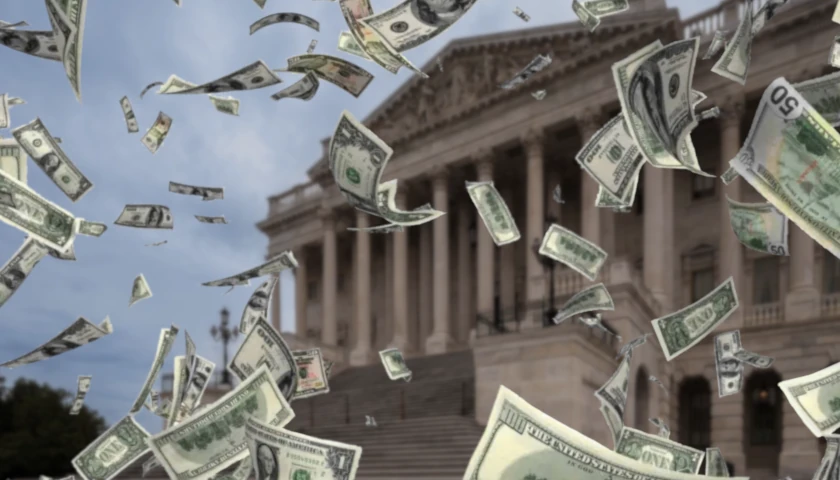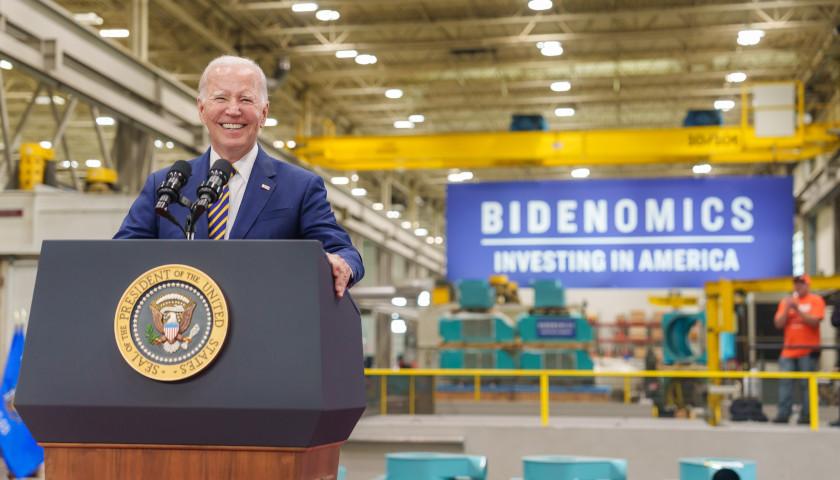Pennsylvania State Senator Devlin Robinson (R-Bethel Park) this week proposed changing a program that subsidizes film production to the tune of $100 million annually.
The Keystone State allots the film-production tax credit to movie and television projects on the basis that it generates net economic growth by bringing in new (if temporary) jobs and boosting local businesses. Robinson (pictured above) is circulating a memorandum among senate colleagues suggesting the program could benefit from an increased focus on multi-year projects to make the job gains attributable to the program more stable.
The senator’s emerging bill would require production outfits to sign years-long commitments to work in Pennsylvania to receive the credit. His memo suggests he expects the more than 30,000 Pennsylvania film and television jobs will become even more numerous because of his legislation. He asserted the program has helped the state’s economy significantly already, ascribing $3.3 billion in economic activity to the film-production incentive since it began in 2007.
“Senator Robinson believes that this bill is necessary because we know how multi-year production commitments bring steady streams of revenue into PA, specifically in the area where filming is taking place,” Robinson legislative director Allison Dutrey told The Pennsylvania Daily Star. “So small, local businesses will greatly benefit from the production-company needs such as food services, hotels, transportation, etc. And instead of losing potential business to surrounding states with better tax incentives, companies will begin to consider doing business in PA upon enactment of this bill.”
Opponents of film tax incentives, however, doubt any adjustment can make such programs worthy of taxpayer dollars insofar as they funnel that money to an industry that state officials happen to favor. Commenting via email, economist Robert E. Wright of the American Institute for Economic Research described the subsidies as “more doggle than boon.”
“The revenue not collected from the film industry will have to be borrowed, or in other words paid for by future taxpayers, or made up by other current taxpayers,” he wrote. “Should a single working mother of two pay a dollar more in taxes so that some big production company has higher profits and a mountain flick gets filmed in PA instead of [West Virginia], or a gritty urban drama is filmed in Philly instead of [Baltimore]?”
Wright allowed that film tax credits could theoretically bring the commonwealth sufficient revenue to make up for the allocations, but other states would naturally seek to outbid Pennsylvania, putting upward pressure on these programs all around.
“It seems a race to the bottom is already occurring,” he said.
While supporters often tout film tax credits as an economic necessity, a 2019 report by Pennsylvania’s nonpartisan Independent Fiscal Office noted that Michigan, Florida, and Indiana used to have similar programs but allowed them to expire. Film and television employment nevertheless continued to grow in all three of these states. In all, sixteen states still do not offer film-production tax incentives.
– – –
Bradley Vasoli is managing editor of The Pennsylvania Daily Star. Follow Brad on Twitter at @BVasoli. Email tips to [email protected].
Photo “Devlin Robinson” by Devlin Robinson for State Senate. Background Photo “Filmmakers” by Lê Minh.





